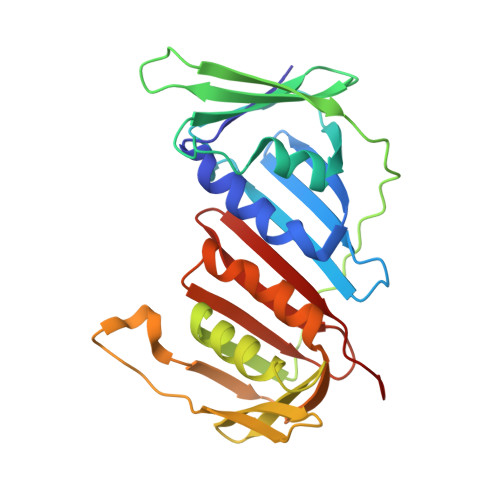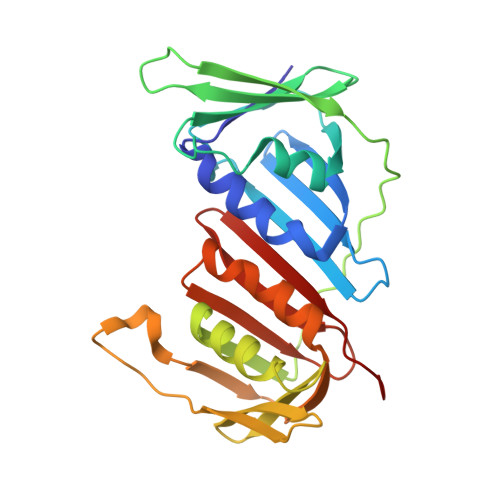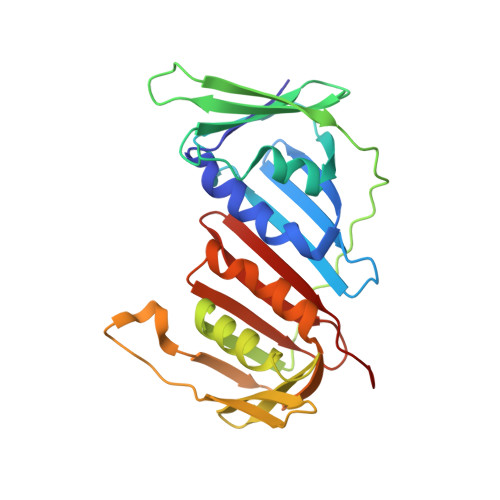Distinct structural alterations in proliferating cell nuclear antigen block DNA mismatch repair.
Dieckman, L.M., Boehm, E.M., Hingorani, M.M., Washington, M.T.(2013) Biochemistry 52: 5611-5619
- PubMed: 23869605
- DOI: https://doi.org/10.1021/bi400378e
- Primary Citation of Related Structures:
4L60, 4L6P - PubMed Abstract:
During DNA replication, mismatches and small loops in the DNA resulting from insertions or deletions are repaired by the mismatch repair (MMR) machinery. Proliferating cell nuclear antigen (PCNA) plays an important role in both mismatch-recognition and resynthesis stages of MMR. Previously, two mutant forms of PCNA were identified that cause defects in MMR with little, if any, other defects. The C22Y mutant PCNA protein completely blocks MutSα-dependent MMR, and the C81R mutant PCNA protein partially blocks both MutSα-dependent and MutSβ-dependent MMR. In order to understand the structural and mechanistic basis by which these two amino acid substitutions in PCNA proteins block MMR, we solved the X-ray crystal structures of both mutant proteins and carried out further biochemical studies. We found that these amino acid substitutions lead to subtle, distinct structural changes in PCNA. The C22Y substitution alters the positions of the α-helices lining the central hole of the PCNA ring, whereas the C81R substitution creates a distortion in an extended loop near the PCNA subunit interface. We conclude that the structural integrity of the α-helices lining the central hole and this loop are both necessary to form productive complexes with MutSα and mismatch-containing DNA.
Organizational Affiliation:
Department of Biochemistry, Carver College of Medicine, University of Iowa, Iowa City, IA 52242, USA.


















